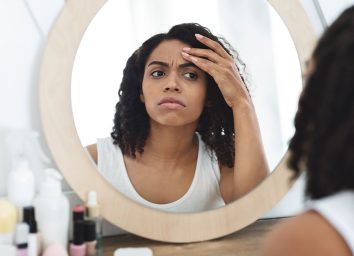Best Supplements for Better Skin, According to Experts
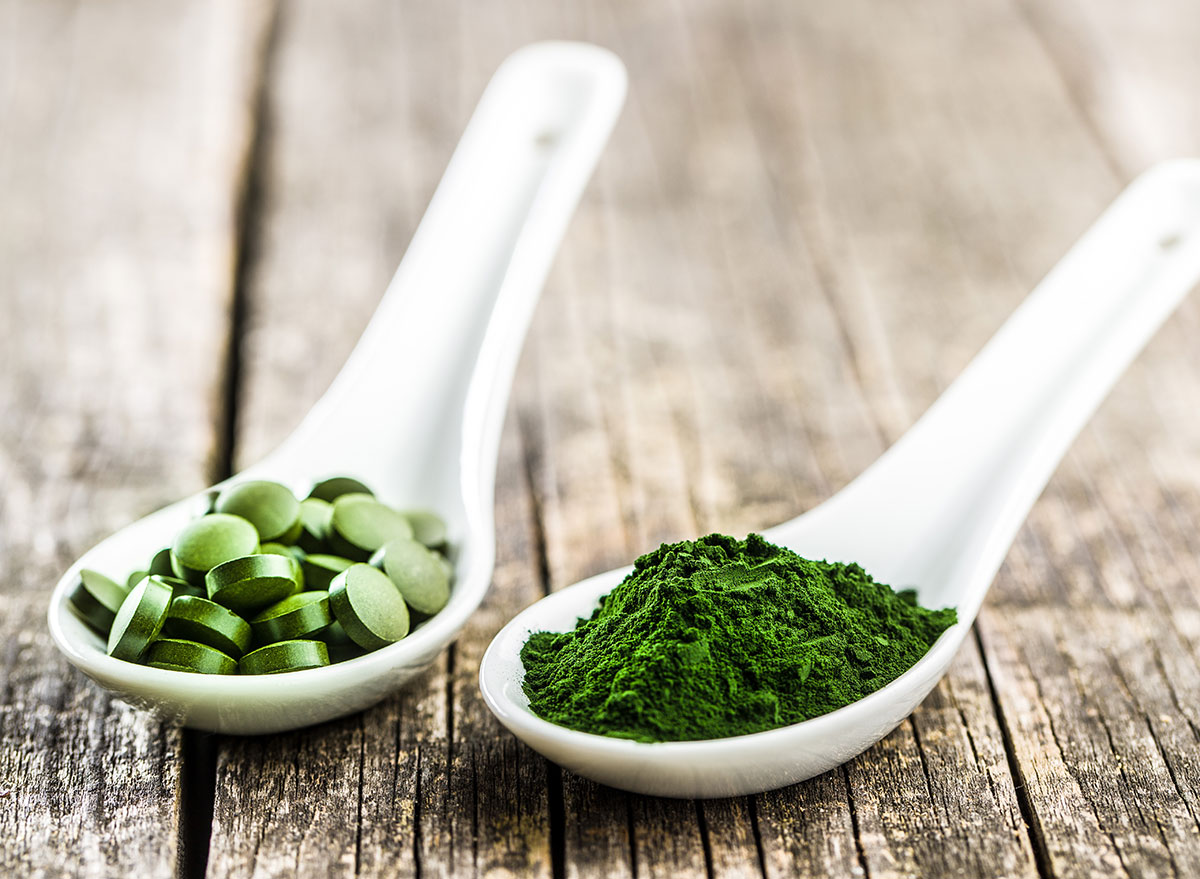
We're all looking forward to the day when we aren't micro-analyzing our own complexions on Zoom, oh, 20 hours a week. But until that wonderful moment finally comes, we may as well do the best we can to help our skin—the largest organ in our bodies—look its best.
Beyond including foods that improve your skin in your diet, there's also a slew of supplements that can help your visage glow, stay young and healthy, and keep blemishes at bay. Below, experts share their go-to supplements for luminous, healthy skin. It's worth noting: Before adding a new supplement to your routine, always consult with a medical professional. And for more on how to eat healthy, don't miss the 7 Healthiest Foods to Eat Right Now.
Vitamin C
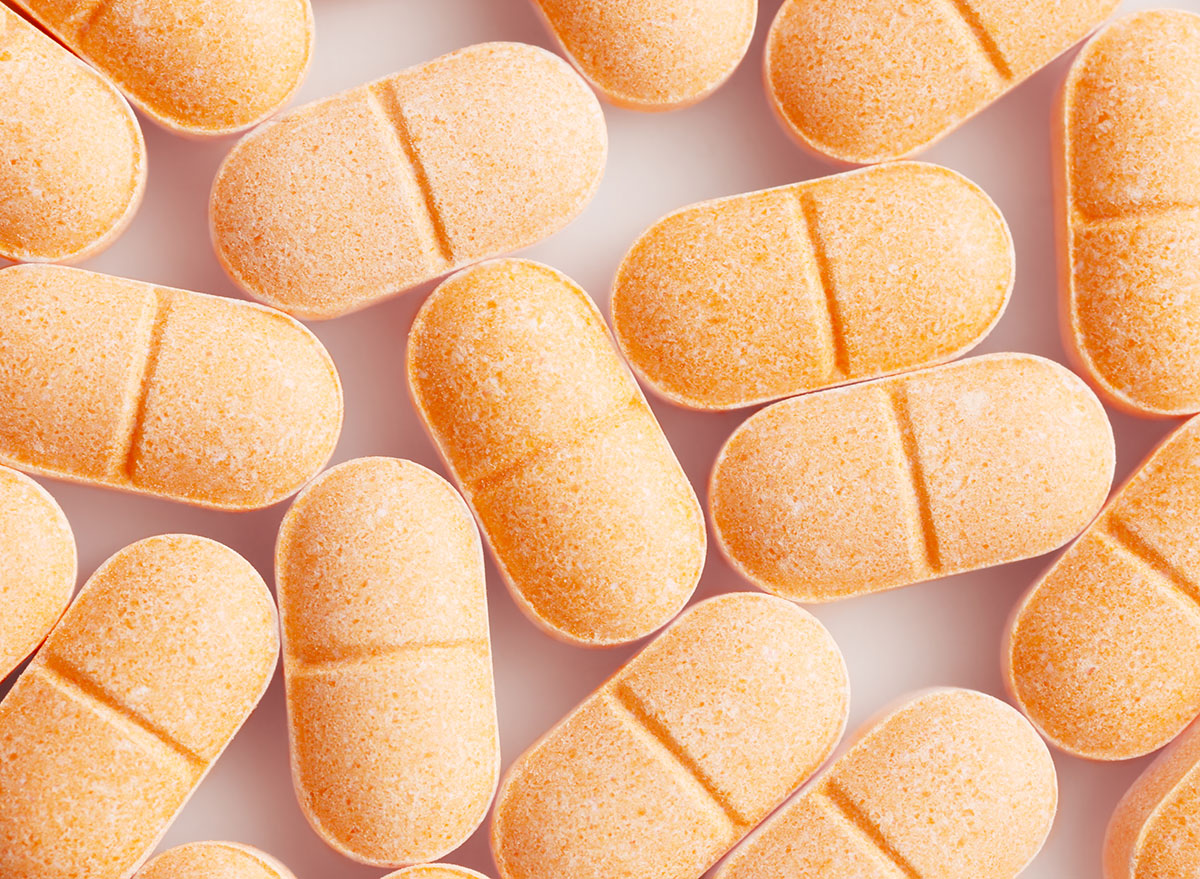
Let's hear it for this potent skin-protector, folks. "Stress and increased toxins naturally increase the need for antioxidants, especially vitamin C, as it plays a significant role in the structure and function of the skin. Healthy skin needs a high amount of vitamin C to stimulate collagen production, protect from harmful UV rays, heal wounds, and act as an antioxidant to protect the skin from free radicals," Ruby Ali, MS, RDN says.
"This means that vitamin C can help you have smoother skin with fewer wrinkles, reduced inflammation, and even say goodbye to acne and hello to a brighter complexion."
Antioxidant Blends
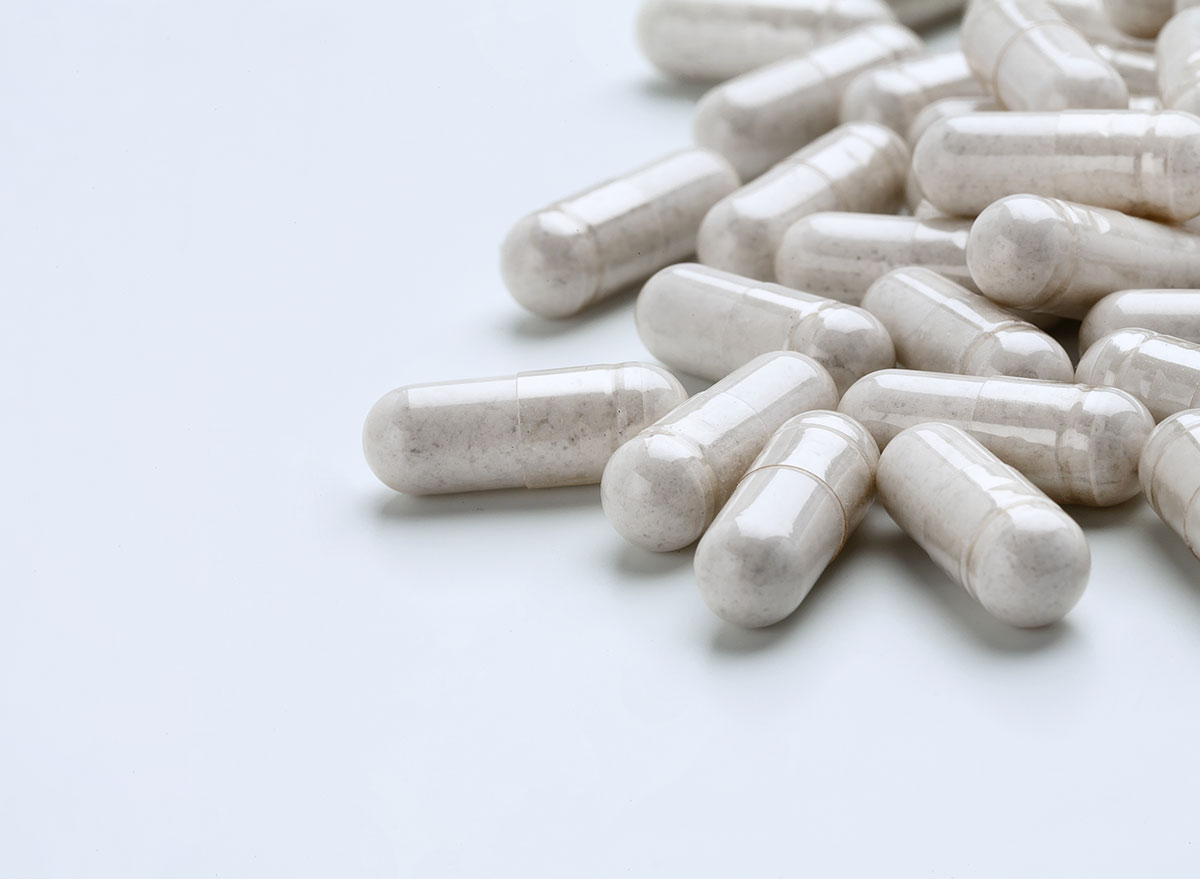
"There are two primary causes of accelerated aging on the skin: excessive unprotected sun exposure and advanced glycation end products (AGEs). AGEs form as a result of sugar combined with fat or protein," says Trista K. Best, MPH, RD, LDN, a registered dietitian with Balance One, noting that this describes most processed convenience foods like potato chips, ice cream, and baked goods.
Antioxidant-specific supplements can work to counteract this damage through vitamins, minerals, and phytonutrients, Best explains.
"Antioxidant blend formulations will provide highly potent blends of herbs and fruit extracts. These ingredients provide plant compounds like flavonoids that have been scientifically proven to remove or reduce free radical damage that is connected with aging and a range of other conditions," she elaborates, noting that she personally likes NOW's Super Antioxidants.
Some common examples of plant compounds to look for in a supplement include green tea extract, milk thistle, turmeric root, bromelain, ginkgo biloba, ginger, bilberry, quercetin, and grape seed extract. Best says "each of these antioxidants is unique in its ability to find and eradicate free radical damage."
Ashwagandha
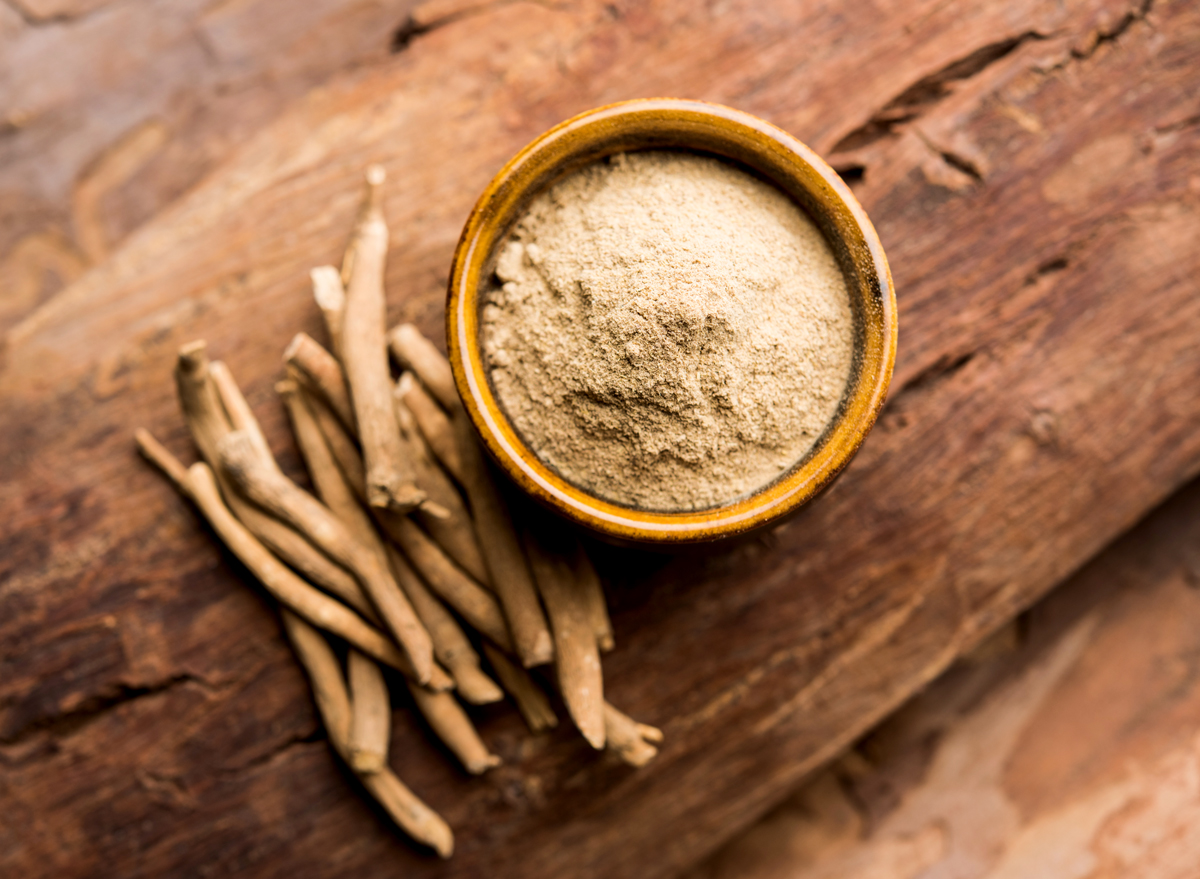
"This might seem out of the ordinary, but stress hugely affects the health of the skin," Ali says. One herbal supplement, ashwagandha (aka Withania somnifera), has been used for centuries for its healing properties and may help counteract the effects of some of that stress.
"Ashwagandha is a powerful adaptogen that acts as an antioxidant, has anti-inflammatory properties, and makes the body more resilient against stress—thereby promoting a concoction of the right hormones/chemicals in the body for healthier skin," Ali adds.
Her go-to way to take this supplement powder is with a matcha green tea latte in the morning or a smoothie for lunch (or both!).
READ MORE: Ashwagandha: Everything You Need to Know Before You Try It
Collagen Peptides
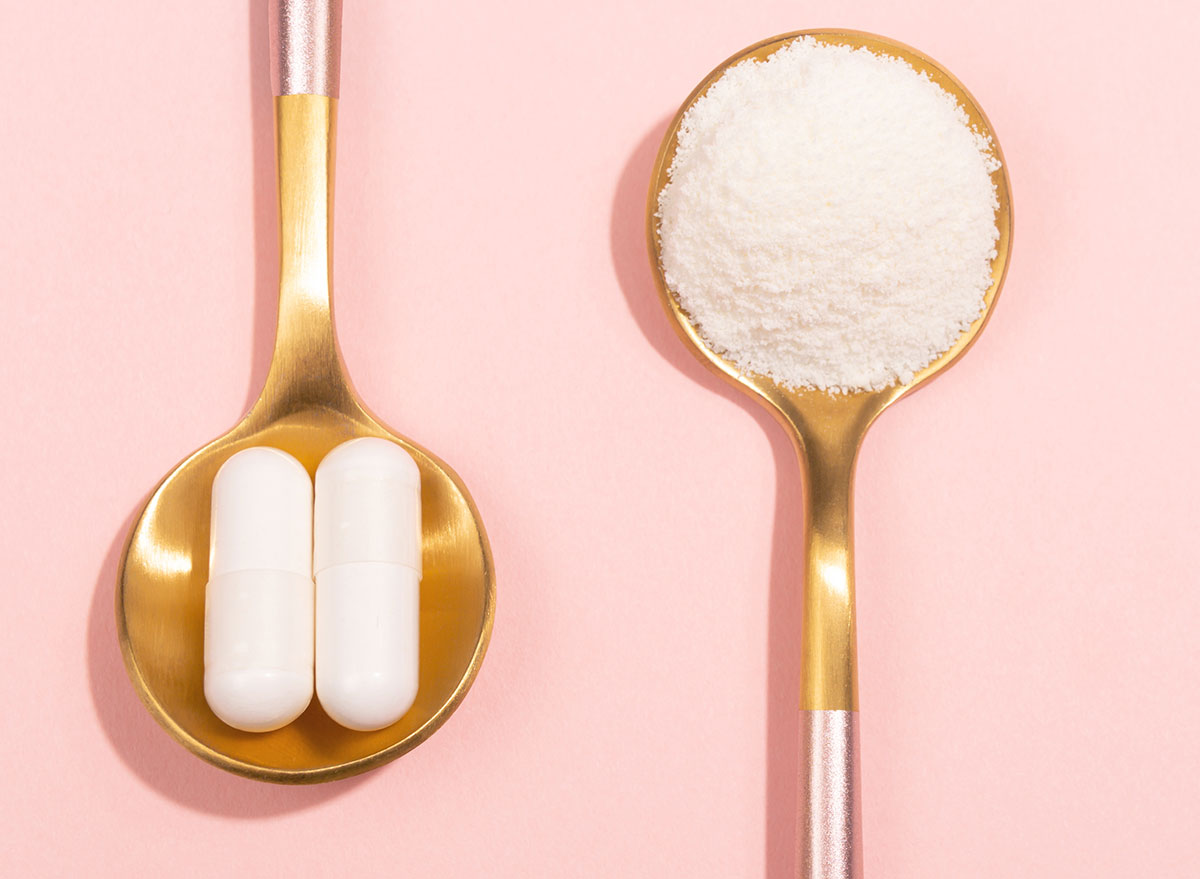
"Collagen peptides supplements are an easy way to boost your skin and hair health. They are easy to take and can help improve your overall skin health by reducing wrinkles and dryness of the skin while increasing elasticity. Collagen peptides can also help with hair and strengthening of the follicle," say plastic surgeons Bill Kortesis, MD, FACS and Gaurav Bharti, MD, FACS, of K&B Management, noting that they personally take these supplements and have noticed an improvement in their skin and hair quality.
Check out what happened when one writer drank collagen peptides for two weeks here.
Vitamin B5
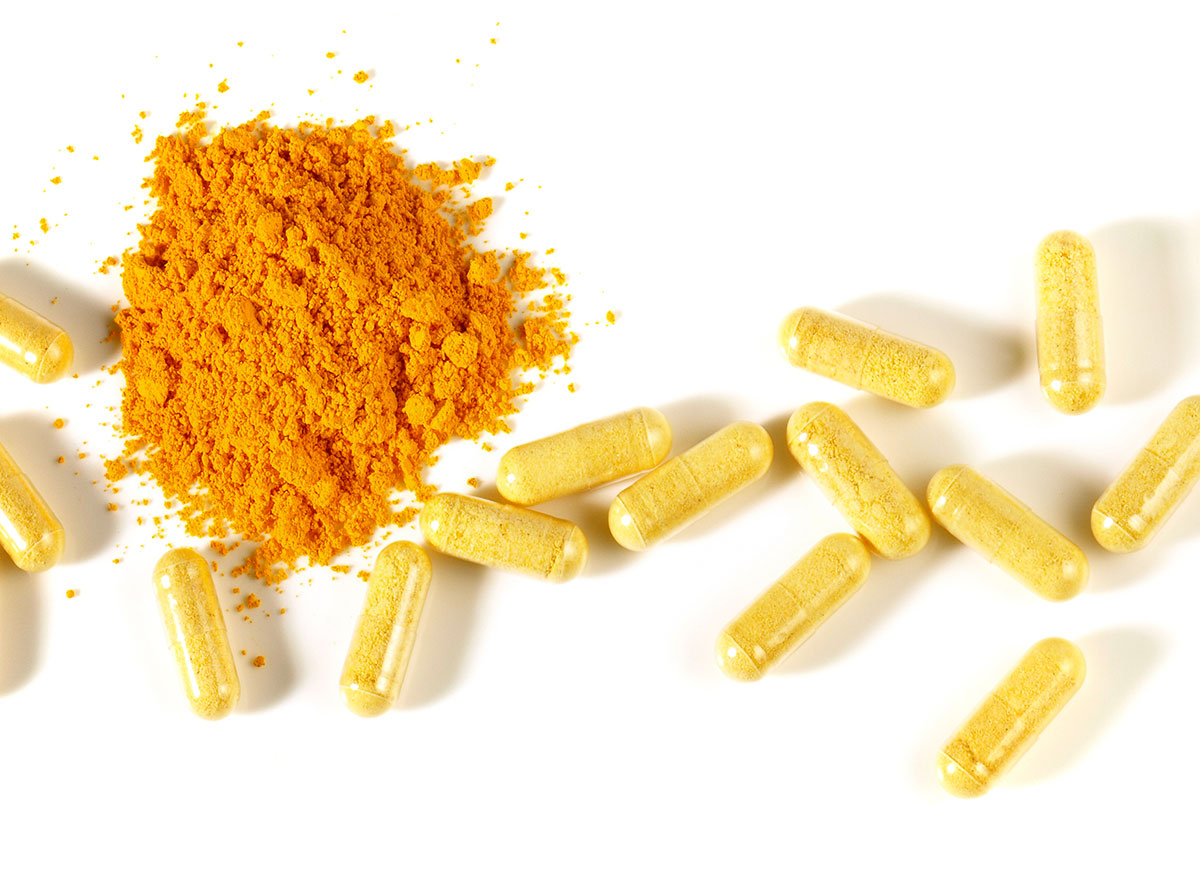
"Vitamin B5, aka pantothenic acid, supports skin health. If your diet isn't as well-balanced as it should be, adding this supplement could help clear up acne," says Yoram Harth, MD, board certified dermatologist and medical director of MDacne.
"This vitamin has been shown to reduce sebum (an oily, waxy substance secreted by glands in your skin) production. Vitamin B5 is also used for stress relief, indirectly aiding acne prevention through lowering anxiety levels," he continues, noting that vitamins and supplements for acne aren't a replacement for medical-grade topical and oral treatments.
"Taking the right supplements with the right amount of vitamins can help with skin health complementing the basic anti-acne treatment," he adds. "[Supplements such as] Vitamin B5 and DIM are believed to provide efficacy comparable to some acne medications."
Zinc

Zinc is a miraculous mineral when it comes to skin health. "This mineral is beneficial to people with skin hair and nail disorders, including acne," Dr. Harth says. "Zinc is believed to reduce the [inflammation caused by the bacteria responsible for acne], decrease skin redness related to acne, and reduce keratinocyte proliferation, reducing the risk for clogged skin pores." To get zinc from your diet, check out these 20 Foods High in Zinc.
Chlorella
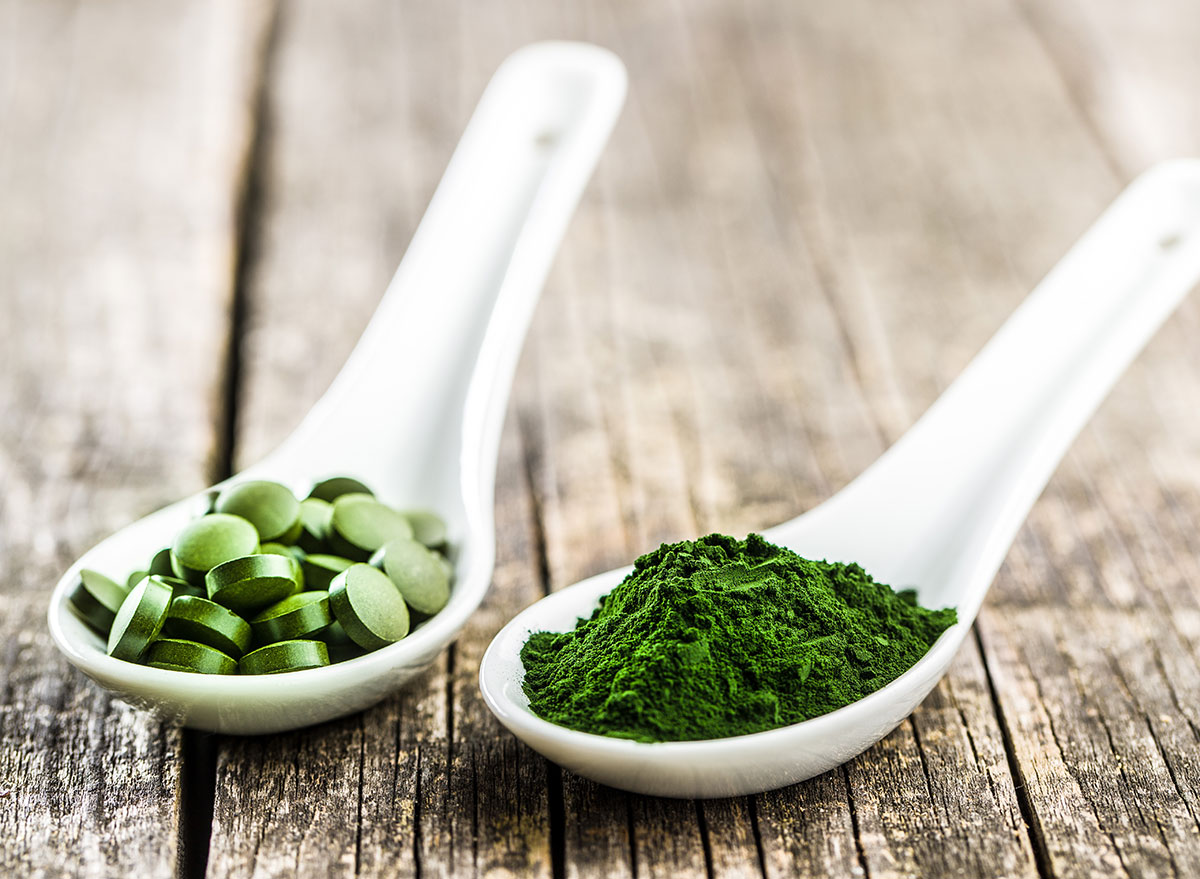
It's time to befriend this nutrient-dense algae. "The best way to ensure healthy skin is by paying attention not only to what you put on your skin but also what you put in your body. Taken internally, nutrient-dense chlorella works as an antioxidant to boost immunity and support detoxification for healthy skin," says board-certified osteopathic dermatologist Andrew Racette, DO, who has been using Sun Chlorella products for years, as well as recommending them to his patients. Bonus: Chlorella is believed to promote healthier hair, too.
For more ways to support skin health, consider cutting these 13 Foods That Make Your Skin Worse, According to Dermatologists from your diet.

